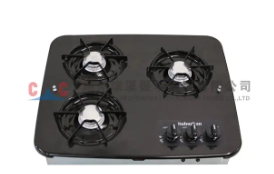1.Smart RV Components Revolutionize Modern Travel with Enhanced Intelligence
1.1 Real-Time Monitoring and Adaptive Control Simplify RV Operation
Advanced RV components now feature intelligent control systems capable of monitoring onboard facilities such as lighting, temperature, and power usage in real-time. Integrated with smart sensors and control modules, these systems adjust automatically based on user preferences and environmental changes, streamlining RV operation to a single user-friendly interface.
1.2 Intelligent Temperature Regulation Ensures Consistent Indoor Comfort
Modern RVs are equipped with smart climate control systems that automatically detect outdoor temperature and humidity. These systems make continuous adjustments to maintain a comfortable indoor environment, reducing the need for manual input while ensuring energy is used precisely and efficiently to avoid overcooling or overheating.
1.3 Adaptive Lighting Systems Promote Energy Savings and Ambiance
Smart lighting systems in RVs adapt to the owner's activity and time of day. They automatically adjust brightness and illumination zones, enhancing user experience while minimizing unnecessary energy consumption. This not only creates a more relaxing environment inside the RV but also contributes to the overall efficiency of onboard electrical systems.

2.Energy-Saving Technologies Lead the Way in Sustainable RV Design
2.1 Integration of Renewable Energy Enhances Off-Grid Independence
Solar panels and compact wind turbines are increasingly standard in RVs, allowing users to harness renewable energy during travel. This reduces reliance on external power sources and ensures uninterrupted operation of essential onboard systems even in remote areas, promoting a more autonomous and sustainable travel experience.
2.2 Smart HVAC and Water Systems Cut Energy and Resource Waste
Energy-efficient air conditioners now operate in sync with environmental sensors to optimize cooling and heating based on real-time needs. In parallel, intelligent water filtration and recycling systems ensure minimal water waste, enabling RVs to maintain comfort and hygiene standards without excessive consumption.
2.3 Sustainable Engineering Reduces RVs’ Environmental Footprint
The use of lightweight, thermally efficient materials combined with energy-optimized system layouts allows RVs to achieve lower energy draw. These green design innovations not only reduce fuel or battery usage but also align with broader environmental goals, making RV travel more ecologically responsible.

3.Smart-Energy Integration Unlocks the Future of High-Efficiency RV Living
3.1 Unified Systems Optimize Energy Flow and System Coordination
By connecting smart monitoring tools with energy-saving modules, RVs achieve synchronized control over power distribution. The intelligent system can identify areas of energy inefficiency and reroute or minimize usage, ensuring maximum power output with minimum waste, regardless of travel conditions.
3.2 Extended Autonomy Empowers Longer Journeys Without Compromise
Through the deep integration of intelligence and renewable energy, RVs can now operate autonomously for extended periods. Owners no longer need to constantly seek power hook-ups or refill utilities, making long-distance or off-grid travel more viable and stress-free than ever before.
3.3 Greater Efficiency Enhances Lifestyle, Comfort, and Mobility
The fusion of smart features and sustainable energy systems transforms the RV into a mobile living space that feels as comfortable as a stationary home. This dual-advantage approach improves usability, reliability, and convenience, redefining what’s possible in modern mobile living and expanding the appeal of RV travel to a broader audience.